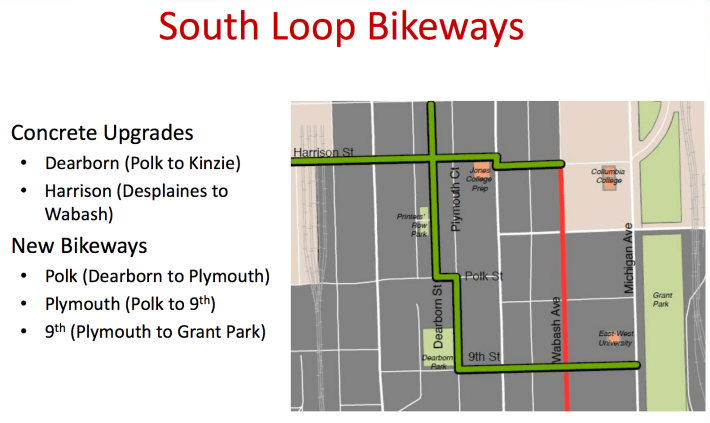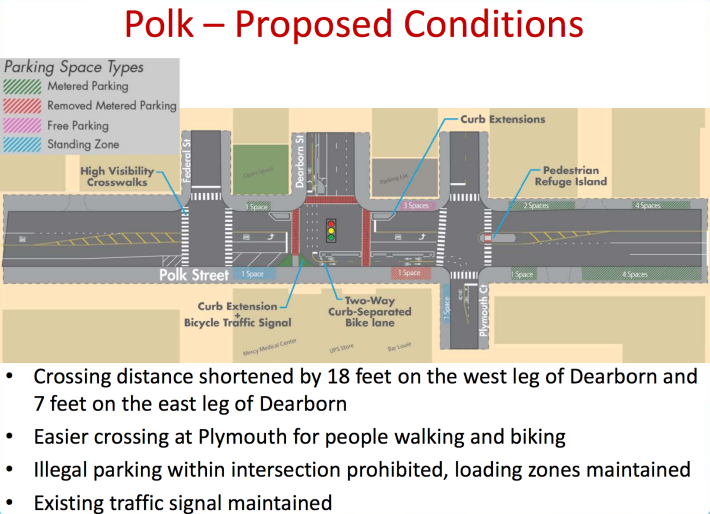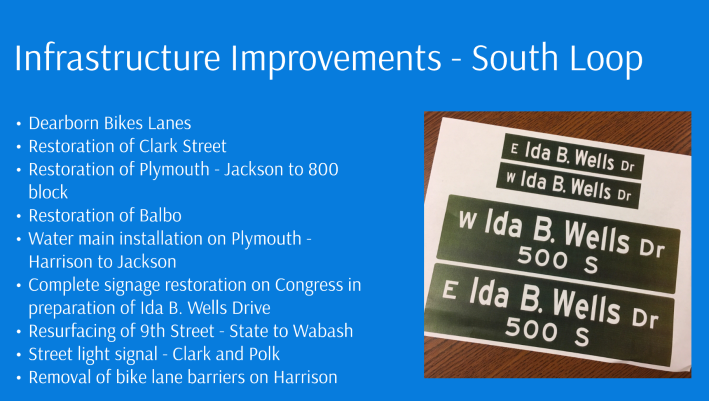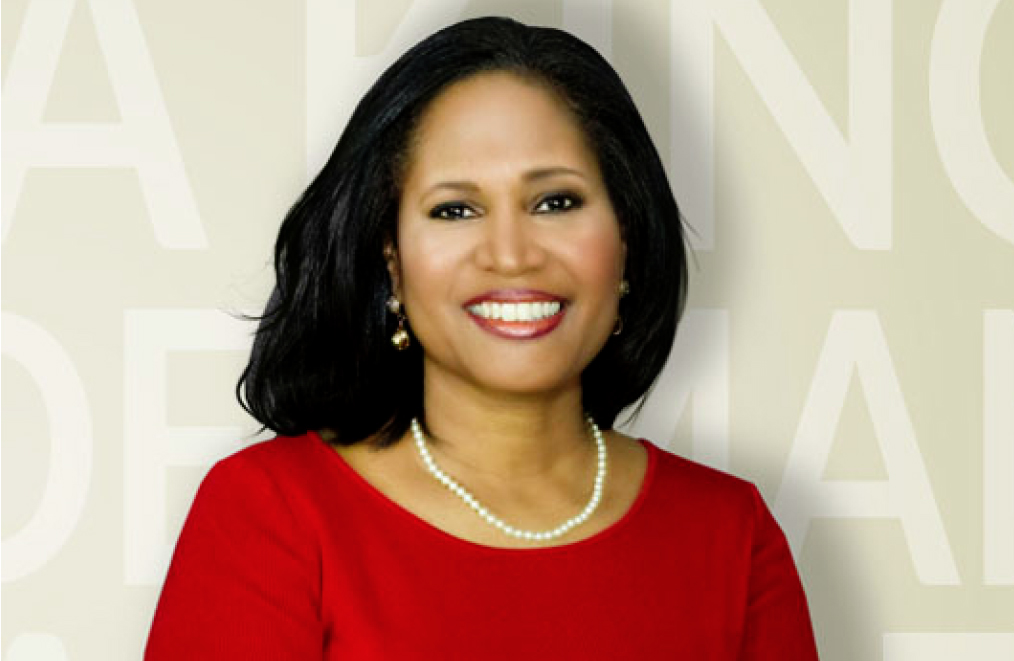What is it about with South Loop aldermen and policies that favor private car owners over everyone else? In the Third Ward, Pat Dowell has called for a new tax on bikes; blocked Car2go point-to-point car-sharing from operating in her district; tried to kill the 31st Street bus; and is currently trying to prevent a new Red Line station from opening at 15th and Clark.
Dowell’s colleague in the neighboring Fourth Ward, Alderman Sophia King, also opted out of the car-sharing pilot, citing worries about on-street parking becoming more scarce for car owners, despite the fact that studies have shown that Car2go reduces car ownership. And, according to constituent Andrew Burkey, it appears that lately lately King has been taking steps to block the construction of new bikeways and in her ward, and downgrade existing ones.
At a Fourth Ward community meeting in August 2017, the Chicago Department of Transportation presented final plans to add concrete curbs to existing protected bike lanes on Dearborn and Harrison streets. CDOT also proposed installing new bikeway to create a low-stress connection from the south end of Dearborn (located at the Dearborn Station building) to Grant Park. It its presentation to residents, the department noted that 41 percent of households in the project area do not own a car, and 47 percent have one car. In addition 57 percent of South Loop residents walk, bike, or take transit to work.

The plan called for adding concrete parking lane caps on Dearbon, work that was completed last fall.
On some stretches of Harrison, concrete curbs were supposed to replace the plastic posts within the striped buffers to the left of the bike lanes, while east of Clark Street CDOT planned to remove the posts by the eastbound bike lane “to improve right turn operations.”
Plans for the new low-stress route included installing a two-way, curb-protected bike lane on the south side of Polk between Dearborn and Plymouth Court, along with concrete curb extensions and a pedestrian island to make crossing Polk safer. There would have been no loss of legal car parking spots.
The low-stress route was to continue on Plymouth and 9th Street to Grant Park, with bike-and-chevron “sharrow” markings installed on the pavement, plus wayfinding signs. There were going to be no impacts on travel lanes or car parking on these streets.

The Harrison, Polk, and 9th work was supposed to be completed by spring 2018. But so far it hasn’t happened, save for the removal of all of the Harrison bike lane posts, not just the ones directly east of Clark. In addition to the bollard removal, the eastbound bike lane on Harrison between Clark and Dearborn was removed to make room for another mixed-traffic lane, although Burkey says this is usually full of parked cars.
Burkey adds that at a recent community meeting on parking in the Fourth Ward, King presented a plan to add parking along the west side of Plymouth south of Polk Street by Dearborn Station, which he feared would have encroached on the planned bikeway. “She was not willing to engage in answering that question.”
At another meeting on January 15, Burkey asked King for an update on the Harrison bike lanes. The ward covers Harrison from Financial Place to Wabash Avenue. “I asked about the constant problem of vehicles blocking the lanes, especially State to Wabash,” he says. “Alderman King said that the plastic posts were removed last year because the bike lanes were causing traffic congestion. I’m not sure how that is possible, since Google Maps shows the same number of lanes for cars before and after the bike lanes were put in.”
According to Burkey, King also stated that the concrete curbs that were planned for Harrison this might not be happening. “I left with the impression that she was behind the moves to downgrade the bike infrastructure, which discourages people from riding.”

Burkey shared the presentation from the meeting, which states that one of King’s development priorities is “the preservation of on-street parking” (slide 17.) The removal of the posts on Harrison are mentioned as an “infrastructure improvement” (slide 38.) And a map of proposed parking changes in the South Loop (slide 40) shows “adjusted metered parking” on Polk and “new metered parking” on Plymouth, which Burkey interpreted to mean that the planned bikeways on Polk are a no-go.
On a positive note, Burke says he contacted King’s office after the first snowstorm of the winter to ask for better plowing of Dearborn and Plymouth bike routes, and clearance seemed to have improved after the mid-January snowfall. He also credits her with allowing CDOT to do a relatively bike-friendly redesign of Drexel Boulevard, which involved moving the existing bike lanes next to the grassy median.
However, Burkey says “The presentation given at the [January 15] ward meeting... basically confirms my belief that Alderman King is bad for bikes." He adds that when he recently talked with a CDOT representative about bike infrastructure, the rep “noticeably rolled his eyes when I mentioned that I lived in the fourth ward.”
The Fourth Ward didn’t return messages. CDOT didn't respond to a request for updates on Harrison, Polk, and Plymouth.
While, thanks to radio silence from city officials, we don’t know for sure if, as Burkey suspects, the planned South Loop bikeway improvements have been killed by King's preoccupation with parking. But it would be great if the alderman would spent a little less time worrying about making driving and parking convenient for car owners, and more time making walking and biking safer for her many constituents who don’t own cars.
![]()
Did you appreciate this post? Consider making a donation through our PublicGood site.




